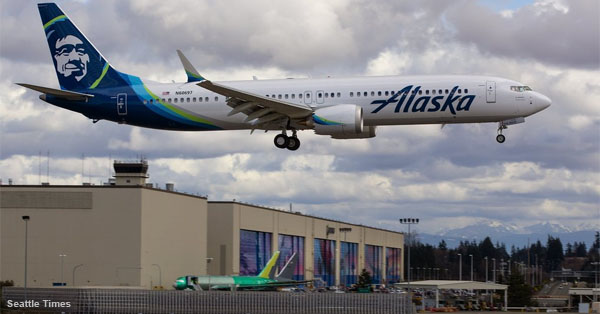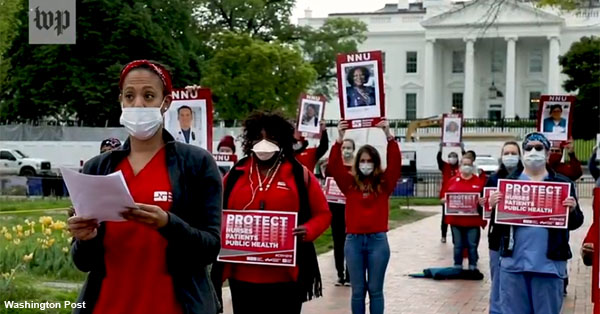NEWS ROUNDUP
15% fewer jobs at Boeing ● Gridlock at ESD ● Nurses are trying to save us
Wednesday, April 29, 2020
BOEING
► From the Seattle Times — Boeing will cut more than 15% of jobs in commercial jet division, CEO Calhoun says — Boeing said Wednesday it will slash “more than 15%” of jobs in its Seattle-based commercial airplanes division and some smaller units as it pares the total workforce by 10% to cope with a sharp downturn in the aviation industry. The company will also slow production of the jets it builds in Renton and Everett. As Boeing announced a first-quarter loss of $641 million and a 26% drop in revenue, CEO Dave Calhoun outlined the planned production cuts. Boeing said Wednesday it has started to shrink through attrition, paying people to leave, and “layoffs as necessary.”
► From Reuters — Exclusive: Boeing eyes major bond issue to raise funds — Boeing is working with investment banks on a multibillion-dollar bond-fueled financing package as it aims to shore up its balance sheet. The preparations reflect Boeing’s confidence it can tap the capital markets to strengthen its finances, even as the largest U.S. planemaker weighs seeking government aid.
THIS WASHINGTON
► LIVE from the Seattle Times — Coronavirus daily news update, April 29 — The most recent count of COVID-19 cases in Washington totals 13,842 infections (up 156 from yesterday) and 786 deaths (up 21), according to the state Department of Health.
► From the Olympian — New date for end of stay-at-home order? We may know later this week — Gov. Jay Inslee later this week may give the public a new date for when the stay-at-home and partial business closure order will expire, a top aide said Tuesday. The current emergency proclamation runs through May 4, but Inslee has said several times it will be extended.
 ► From the Spokesman-Review — Washington grapples with thousands gridlocked in unemployment system — Will O. Smith picked a fine time to switch jobs. The coronavirus pandemic hit just after the Spokane resident started his new gig, and he quickly became one of tens of thousands of Washingtonians stuck in a pool of out-of-work employees making hundreds of unanswered phone calls into an unemployment system ill-equipped to offer them assistance. As bills for the car payment, cellphone and rent came due over the past six weeks, Smith said he sent more than 20 emails and made more than 100 phone calls. Finally, on Tuesday, he connected with a female employee at the state Employment Security Department. “I asked her right off the bat, ‘What is holding up this claim,’ ” Smith said. “She said, ‘Oh. it’s on our end.’”
► From the Spokesman-Review — Washington grapples with thousands gridlocked in unemployment system — Will O. Smith picked a fine time to switch jobs. The coronavirus pandemic hit just after the Spokane resident started his new gig, and he quickly became one of tens of thousands of Washingtonians stuck in a pool of out-of-work employees making hundreds of unanswered phone calls into an unemployment system ill-equipped to offer them assistance. As bills for the car payment, cellphone and rent came due over the past six weeks, Smith said he sent more than 20 emails and made more than 100 phone calls. Finally, on Tuesday, he connected with a female employee at the state Employment Security Department. “I asked her right off the bat, ‘What is holding up this claim,’ ” Smith said. “She said, ‘Oh. it’s on our end.’”
The Stand (April 26) — WSLC offers tips for filing your weekly unemployment claims
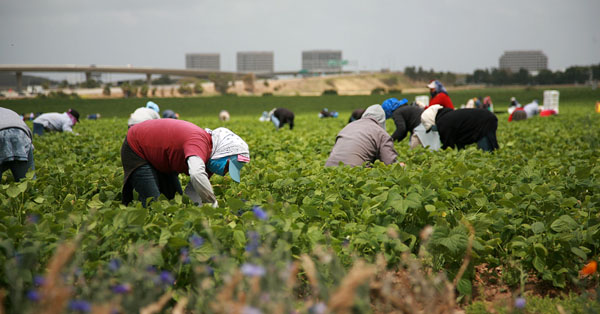
► From the Yakima H-R — Growers push back on proposed rules to protect guest farmworkers from COVID-19 — Farm labor advocates and growers are at odds over efforts to establish social distancing rules in guest worker housing programs. Growers are required to provide housing for workers in guest worker programs, such as H-2A, which could amount to 30,000 field workers statewide this year. Labor advocates worry not enough is being done to protect those workers from the spread of COVID-19. They are calling for stringent rules assuring plenty of distance between workers in living quarters, when sleeping and during transportation to work sites.
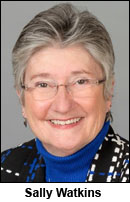 ► From the Seattle Times — Doctors, hospitals urge Inslee to restart elective procedures as COVID-19 patient numbers decline — The Washington State Hospital Association, an industry group representing the state’s hospitals, is urging Inslee to allow more elective health care procedures to resume. “We have been collaborating with WSHA and labor unions on interpretive guidelines to help hospitals understand the intent and scope of the governor’s original order,” said Tara Lee, a spokeswoman for the governor. “We expect to have this done very soon, perhaps within a day.” Shortages of protective equipment remain a concern for the Washington State Nurses Association. “We’re still hearing stories from our members. They’re having to use masks for extended periods of time, some having to put masks in paper bags to reuse them,” said Sally Watkins, the executive director of the WSNA.
► From the Seattle Times — Doctors, hospitals urge Inslee to restart elective procedures as COVID-19 patient numbers decline — The Washington State Hospital Association, an industry group representing the state’s hospitals, is urging Inslee to allow more elective health care procedures to resume. “We have been collaborating with WSHA and labor unions on interpretive guidelines to help hospitals understand the intent and scope of the governor’s original order,” said Tara Lee, a spokeswoman for the governor. “We expect to have this done very soon, perhaps within a day.” Shortages of protective equipment remain a concern for the Washington State Nurses Association. “We’re still hearing stories from our members. They’re having to use masks for extended periods of time, some having to put masks in paper bags to reuse them,” said Sally Watkins, the executive director of the WSNA.
► From the Seattle Times — Stay the course, Washington (editorial) — The slow return to activity comes with an important caveat — we must ensure the immediate beneficial effects on individuals, businesses and the economy are not overshadowed by increases in infection, illness and death. There will be no shortage of people and industry groups clamoring to be next to receive the green light, but these decisions cannot be made lightly.
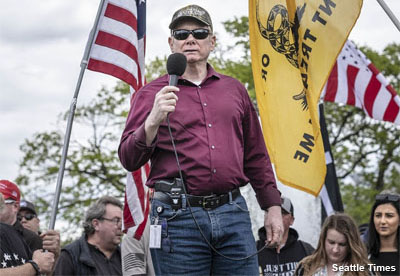 ► MUST-READ in today’s Seattle Times — It’s starting to feel like Republicans want to have a ‘chickenpox party’ for coronavirus in the whole state (by Danny Westneat) — Increasingly, local Republicans seem to be concluding that, science be damned, it’s time we man up and let the virus run. It’s “not necessarily a bad thing” for more people to be exposed to the virus, state Sen. John Braun (R-Centralia) said this week. “It will speed our path, frankly, toward herd immunity.” This notion of easing up and possibly letting society get the virus -— sort of a “chickenpox party” for the state, which scientists say could lead to thousands more deaths — was memorialized Monday by the entire state Senate GOP caucus in a tweet that got mocked so much for callousness it was later deleted. “Who is the COVID virus killing in WA state?” the GOP senators asked. “53% are 80 or older. Let’s protect our older neighbors at home and look at different rules for others.” This isn’t a hypothetical debate about modeling or forecasts anymore — the deaths have happened right here in our communities. I personally knew two people who were killed by COVID-19, and a third whose mother died from it (all three were below age 80, by the way.) This bizarre partisan effort to minimize the disease makes it feel like these lives count for a little less.
► MUST-READ in today’s Seattle Times — It’s starting to feel like Republicans want to have a ‘chickenpox party’ for coronavirus in the whole state (by Danny Westneat) — Increasingly, local Republicans seem to be concluding that, science be damned, it’s time we man up and let the virus run. It’s “not necessarily a bad thing” for more people to be exposed to the virus, state Sen. John Braun (R-Centralia) said this week. “It will speed our path, frankly, toward herd immunity.” This notion of easing up and possibly letting society get the virus -— sort of a “chickenpox party” for the state, which scientists say could lead to thousands more deaths — was memorialized Monday by the entire state Senate GOP caucus in a tweet that got mocked so much for callousness it was later deleted. “Who is the COVID virus killing in WA state?” the GOP senators asked. “53% are 80 or older. Let’s protect our older neighbors at home and look at different rules for others.” This isn’t a hypothetical debate about modeling or forecasts anymore — the deaths have happened right here in our communities. I personally knew two people who were killed by COVID-19, and a third whose mother died from it (all three were below age 80, by the way.) This bizarre partisan effort to minimize the disease makes it feel like these lives count for a little less.
LOCAL
► From the News Tribune — Tacoma nurse brought COVID-19 home. Now her husband is on a ventilator, fighting for his life. — Tammy Edwards remembers closing her front door and falling to her knees. Moments earlier, the nurse at Tacoma General Hospital had watched her husband of nearly 10 years, Brian Edwards, strapped to an oxygen tank and taken away in an ambulance. She knew he was stricken with COVID-19, because she had brought it home from work. She knew, because of her medical training and the overwhelming signs, he was struggling — most notably an inability to breath and dangerously low oxygen levels. And, amid the coronavirus precautions and limits on visitation, she knew precisely what a trip to the hospital under such circumstances could mean — that the kiss on the cheek she’d given Brian moments earlier might be the couple’s last.
► From the Columbian — Hard-hit local governments need federal help (editorial) — The long-term impact of the coronavirus outbreak remains hazy. But it is relatively clear that our parks won’t look as nice, our streets won’t be as clean and our law enforcement won’t be as robust.
► From the Seattle Times — Coronavirus outbreak grows at Oregon frozen-food plant — A novel coronavirus outbreak at National Frozen Foods in Albany, Oregon, has grown. There are now 18 cases of COVID-19 associated with the Albany plant. Processing remained shut down at the facility on Tuesday, said Michael Beranbaum of Teamsters Local 670, which represents about 270 workers at the plant.
EDITOR’S NOTE — Compare that response to the outbreak at the nonunion Tyson Fresh Meats plant in Wallula, Wash., where more than 100 COVID-19 cases and one worker’s death were linked to the plant before it was finally (but temporarily) shut down late last week. More evidence of The Union Difference.
THAT WASHINGTON
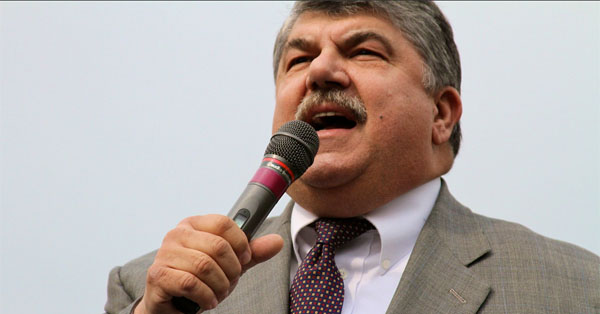
► From The Hill — AFL-CIO calls on Labor Department to ramp up protections for workers amid pandemic — The message addresses the DOL’s supposed failure to fulfill safety responsibilities for workers as well as alleged false claims by Labor Secretary Eugene Scalia, who said he has all the tools for addressing the pandemic and would “use them if necessary,” according to a statement from AFL-CIO. “Thousands of workers have died and are sick. If that’s not necessary, I don’t know what is,” said AFL-CIO President Richard Trumka. “The DOL and the federal government have failed to meet their obligation and duty to protect workers. The government’s response has been delinquent, delayed, disorganized, chaotic, and deadly.”
► From Politico — Workers turn to courts and states for safety protection as Trump declines to act — A judge this week ordered leading meat company Smithfield to follow federal safety recommendations at a plant in Missouri, and labor advocates hope to use the lawsuit as a model to force companies in other sectors to protect workers. They’re also asking Democratic lawmakers to make safety standards a part of the next round of coronavirus relief. In addition, they’re turning to state governments to enforce such protections.
► From the Seattle Times — Businesses seek sweeping shield from pandemic liability before they reopen — Business lobbyists and executives are pushing the Trump administration and Congress to shield U.S. companies from a wide range of potential lawsuits related to reopening the economy amid the coronavirus pandemic, opening a new legal and political fight over how the nation deals with the fallout from COVID-19.
► From The Hill — McConnell draws ‘red line’ on coronavirus bill: It won’t pass without ‘liability protection’ — McConnell said on Tuesday that he was open to providing more help for state and local governments but tied the additional funding to states enacting laws that provided more legal protections for businesses.
► From Politico — Democrats dismiss McConnell’s ‘sad’ new coronavirus offer — Democratic leaders are panning McConnell’s offer to marry new liability protections with aid to state and city governments, signaling a tough fight for Congress’ next round of coronavirus aid.

► From the Washington Post — The U.S. plans to lend $500 billion to large companies. It won’t require them to preserve jobs or limit executive pay. — Under the program, the central bank will buy up to $500 billion in bonds issued by large companies. The companies will use the influx of cash as a financial lifeline but are required to pay it back with interest. Unlike other portions of the relief for American businesses, however, this aid will be exempt from rules passed by Congress requiring recipients to limit dividends, executive compensation and stock buybacks and does not direct the companies to maintain certain employment levels.
► From the Atlantic — Trump’s immigration ‘ban’ has nothing to do with jobs — Two impulses — on the one side, an economic demand for cheap labor; on the other, a desire to preserve white political hegemony — appear to be opposite poles in the immigration debate. But by preserving wealthy Americans’ access to exploitable labor while preventing the laborers themselves from earning the benefits and rights that come with American citizenship, the two visions can be reconciled. Donald Trump’s recent executive order on immigration is constructed to do precisely that.
NATIONAL
► From the Washington Post — Nurses are trying to save us from the virus, and from ourselves — Nurses have always been the glue. They are the link between patient and doctor. They don’t want your pity, and they don’t want to be called a hero; what they want is for you to stay home, stay well, stay alive. For 18 years in a row, nurses have been rated the most honest and ethical profession, according to Gallup surveys of Americans, outpacing doctors by 20 percentage points (and members of Congress by 73). In an era when no one seems to trust anyone, we trust nurses.
► From the Washington Post — Push to reopen economy runs up against workers and consumers worried about risk — Plans for a swift reopening of malls, factories and other businesses accelerated Tuesday, but they quickly collided with the reality that persuading workers and consumers to overlook their coronavirus fears and resume their roles in powering the U.S. economy may prove difficult.
► From Politico — Teachers union: ‘Scream bloody murder’ if schools reopen against medical advice — The nation’s two biggest teachers unions say they would consider strikes or major protests if schools reopen without the proper safety measures in place or against the advice of medical experts — raising the possibility of yet more school disruptions.
► From the Boston Globe — Airline catering workers getting infected, hospitalized at high rate, union says — Historic lack of health insurance and expense of employer plans puts workers providing food and drink to passengers at greater risk.
► From ProPublica — One thing the pandemic hasn’t stopped: Aggressive medical-debt collection — U.S. hospitals are in the spotlight for being on the frontline of fighting the pandemic. But in the shadows, debt collection operations continue, often by the same institutions treating coronavirus patients, all while unemployment and uncertainty soar.
► From the NY Times — How French workers took on Amazon in the middle of a pandemic and won (by Cole Stangler) — The episode shines a light on the benefits of aggressively confronting Amazon: It was only through worker-led protest and a tough-handed response from courts that the tech behemoth began adjusting its behavior to better meet worker needs. As warehouse employees saw firsthand, Amazon often made improvements after it was pressured to do so.
The Stand posts links to Washington state and national news of interest every weekday morning by 10 a.m.

